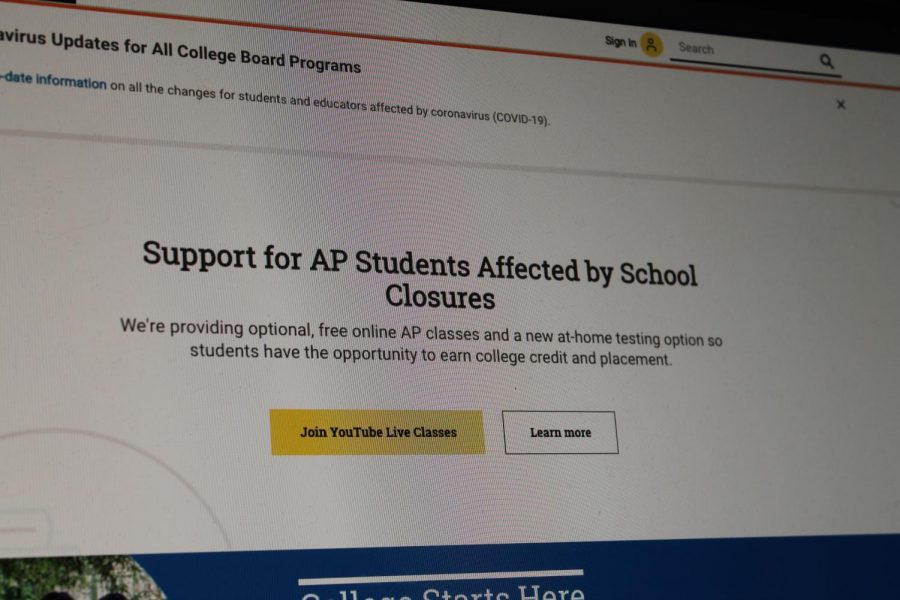College Board changes AP exams to shortened at-home tests
COVID-19 has forced many district-wide changes in order to slow the spread of the virus. For example, Rocklin USD canceled all extracurricular events and overnight travel March 10, eventually closing schools March 13. The scheduled Rocklin High School SAT March 14 was postponed to March 28 and was eventually announced by the College Board as canceled. AP tests, which students paid $90 for, were still a big question.
On March 23, College Board released an update to AP exams on their website, stating that a survey conducted from 18,000 AP students indicated a strong desire for the College Board to continue with the tests. There were changes in topics covered, with only topics and skills most AP students would have learned by early March. Presentations and the end of year exam for Seminar were cut, as well as the multiple-choice part of the test for Computer Science Principles. Due dates for classes that turned in work before the AP test were extended from April 30 to May 26. However, one of the biggest changes was how the tests would be administered.
“For the 2019–20 exam administration only, students can take a 45-minute online free-response exam at home… Students will be able to take these streamlined exams on any device they have access to—computer, tablet, or smartphone. Taking a photo of handwritten work will also be an option,” the update said.
Even with this major change to how AP testing has gone in the past, students are still able to get the credit and be recognized for the work they put into their classes.
With all the work that students go through in these classes, Emilyn Kong was glad that she still had the opportunity to get the college credit for AP Chemistry that she was striving for.
“It’s good to hear that they’re still continuing the AP test because we’ve worked through the year and it would suck to go through the course but not get to take the test we’ve been preparing for,” Kong said.
However, not every student thinks these changes are the best-case scenario. Many of the changes cut aspects of certain tests that students were already preparing for. For example, the AP Seminar exam was cut entirely, and presentations that AP Seminar students had already completed in February were no longer being scored.
“It was a little frustrating that I already put so much time into working on the team presentation and that the work I put in wouldn’t matter, but it’s also nice having a longer time to perfect my current research paper and have a chance to make a few edits to the team research paper as well,” Daya Khunkhun said.
In addition, the change in format worries students, like Brandon Lee, who feel College Board will make these exams too difficult in order to compensate for the shorter length and the at-home aspect of the tests.
“I like that they’re shorter obviously. But I think that since they are, the College Board won’t have enough time to test out how difficult the questions should be. And I’m afraid we’re going to end up with way harder questions than we [should],” Lee said.
Because of these drastic changes from a typical three-hour exam to an at-home, 45-minute exam, students aren’t sure what to expect.
Azelya Macaranas said, “Because of the changed format I know there is a lot of confusion in preparation for these exams. I hate it.”







